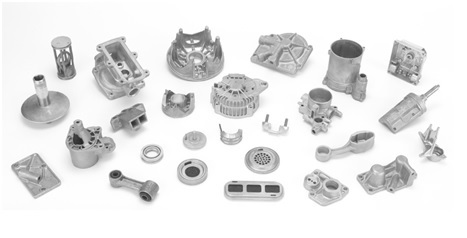Introduction
In recent years, the healthcare industry has witnessed significant advancements in medical technology. One such development is the use of Computer Numerical Control (CNC) machining in the production of medical devices and components. CNC machining, with its ability to produce highly precise and intricate parts, has revolutionized the healthcare sector by enabling the production of complex medical instruments and implants. This article explores the role of CNC machining in healthcare applications and the benefits it offers to both medical professionals and patients.
Understanding CNC Machining
CNC machining utilizes computer-controlled machines to fabricate parts from various materials such as metals, plastics, and ceramics. The process involves creating a 3D model of the desired part using Computer-Aided Design (CAD) software, which is then converted into a set of instructions for the CNC machine. These instructions guide the machine in cutting, shaping, and drilling the material to create the final product with utmost precision.
Applications in Healthcare
Medical CNC machining finds its application in a wide range of healthcare areas, including orthopedics, cardiology, dentistry, and neurology. In orthopedics, CNC machining is used to produce customized orthopedic implants such as knee and hip replacements. The ability to accurately replicate a patient’s unique anatomy ensures a perfect fit and improves post-operative outcomes. Cardiology benefits from CNC machining through the production of stents, which are used to treat narrowed or blocked arteries. The precise dimensions and intricate patterns of the stents allow for optimal placement and improved patient recovery.
Dentistry relies on CNC machining for the fabrication of dental implants, crowns, and dentures. The use of this technology ensures precise fitting, resulting in comfortable and functional prosthetic teeth. CNC machining also plays a crucial role in neurology, where it is used in the production of devices like deep brain stimulation electrodes. These electrodes are used to treat neurological disorders such as Parkinson’s disease and epilepsy. The precision offered by CNC machining helps in accurate electrode placement, enhancing treatment effectiveness.
Advantages of CNC Machining in Healthcare
The use of CNC machining in healthcare offers several advantages over traditional manufacturing techniques. Firstly, CNC machines can produce highly complex and intricate parts that would be almost impossible to fabricate manually. This capability is vital in the production of medical devices that often require intricate designs for optimal functionality.
CNC machining ensures exceptional precision and accuracy, minimizing errors and reducing the need for manual adjustments. The ability to consistently produce high-quality parts results in improved patient outcomes and reduced risks during medical procedures.
CNC machining facilitates rapid prototyping, allowing medical professionals to quickly iterate and test their designs before moving into full-scale production. This enables faster development of innovative medical devices and accelerates the overall advancement of healthcare technology.

Conclusion
Medical CNC machining has revolutionized the healthcare industry by enabling the production of highly precise and intricate medical devices and components. Its applications span across various medical fields, ranging from orthopedics to dentistry to neurology. The advantages offered by CNC machining, including intricate design capabilities, precision, and rapid prototyping, have significantly contributed to improving patient outcomes and advancing medical technology. As technology continues to evolve, the role of CNC machining in healthcare will likely expand, driving further innovation and transforming patient care.
-

- OEM die-casted parts& components
-

- Magnesium alloy die-casting Auto parts Front bumper Anti-collision beam
-

- OEM high pressure die casting magnesium alloy frame for bicycle
-

- Popular Children’s Sports Bicycle High Quality Children’s Balance Bike Children’s Bicycle
-

- Magnesium alloy thixomolding die-casting UAV parts
-

- OEM high pressure die casting magnesium alloy wheel for e-bike

 0086-750-5616188
0086-750-5616188 +86 13392089688
+86 13392089688 sales@zhongmei-tech.com
sales@zhongmei-tech.com







